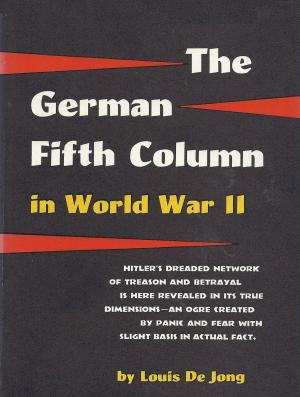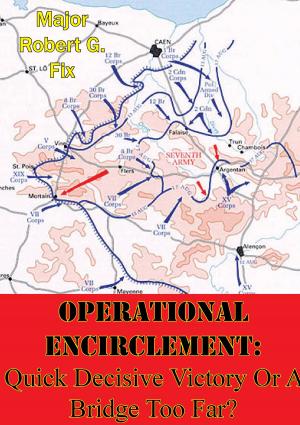Churchill And Wavell: A Study In Political/Military Relationships
Nonfiction, History, Germany, European General, Military, United States| Author: | Colonel John R. Quantrill | ISBN: | 9781782898139 |
| Publisher: | Lucknow Books | Publication: | August 15, 2014 |
| Imprint: | Lucknow Books | Language: | English |
| Author: | Colonel John R. Quantrill |
| ISBN: | 9781782898139 |
| Publisher: | Lucknow Books |
| Publication: | August 15, 2014 |
| Imprint: | Lucknow Books |
| Language: | English |
On 21 June 1941 Churchill relieved General Archibald Wavell from command in the Middle East. This action followed a series of set-backs in the theatre during which Churchill had direct dealings with Wavell. Given the significant internal conflict within the British High Command during World War I, this action by Churchill was seen as symptomatic of yet another poor political/military relationship.
A close examination of the British national command structure shows that while there was certainly inter-personal conflict between Churchill and his Chiefs of Staff, they still maintained an effective relationship. Churchill's strong personality, and penchant for becoming involved in military matters, may have reduced the potential effectiveness of this relationship but it still remained effective none-the-less.
The relationship between Wavell and the British High Command was similarly effective, despite personal conflict between him and Churchill. The High Command provided Wavell with broad strategic guidance, the resources to implement it, and allowed him a relatively free hand to do so. It was only when he strayed from strategic guidance that he came into conflict with the High Command.
Following a brilliant opening series of campaigns in North and East Africa, Wavell lost his broad strategic vision. He allowed part of his limited forces to be dissipated to Greece at a critical time, while under-estimating the implications of German intervention in North Africa. He then failed to appreciate the strategic implications of Axis threats to both Iraq and to Syria, and finally he allowed himself to be pressured into a premature counter offensive in the Western Desert. It is argued that it was these errors which caused Wavell's dismissal, and not a failing in the political/military interface.
On 21 June 1941 Churchill relieved General Archibald Wavell from command in the Middle East. This action followed a series of set-backs in the theatre during which Churchill had direct dealings with Wavell. Given the significant internal conflict within the British High Command during World War I, this action by Churchill was seen as symptomatic of yet another poor political/military relationship.
A close examination of the British national command structure shows that while there was certainly inter-personal conflict between Churchill and his Chiefs of Staff, they still maintained an effective relationship. Churchill's strong personality, and penchant for becoming involved in military matters, may have reduced the potential effectiveness of this relationship but it still remained effective none-the-less.
The relationship between Wavell and the British High Command was similarly effective, despite personal conflict between him and Churchill. The High Command provided Wavell with broad strategic guidance, the resources to implement it, and allowed him a relatively free hand to do so. It was only when he strayed from strategic guidance that he came into conflict with the High Command.
Following a brilliant opening series of campaigns in North and East Africa, Wavell lost his broad strategic vision. He allowed part of his limited forces to be dissipated to Greece at a critical time, while under-estimating the implications of German intervention in North Africa. He then failed to appreciate the strategic implications of Axis threats to both Iraq and to Syria, and finally he allowed himself to be pressured into a premature counter offensive in the Western Desert. It is argued that it was these errors which caused Wavell's dismissal, and not a failing in the political/military interface.


![Cover of the book Experiences of a Dug-Out, 1914-1918 [Illustrated Edition] by Colonel John R. Quantrill](https://www.kuoky.com/images/2015/november/300x300/9781786255259-dq0Y_300x.jpg)

![Cover of the book The Note-Book Of An Attaché - Seven Months In The War Zone [Illustrated Edition] by Colonel John R. Quantrill](https://www.kuoky.com/images/2014/august/300x300/9781782894827-qbjO_300x.jpg)








![Cover of the book Guymeyer — The Ace Of Aces. [Illustrated Edition] by Colonel John R. Quantrill](https://www.kuoky.com/images/2012/april/300x300/9781782890812-oKhD_300x.jpg)

